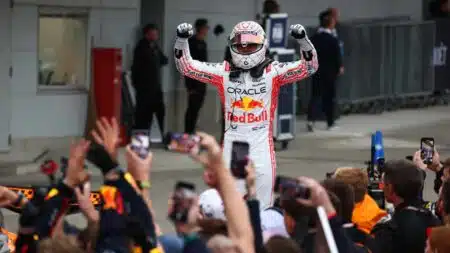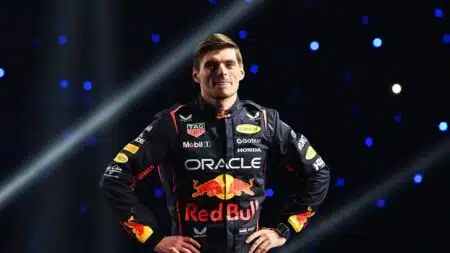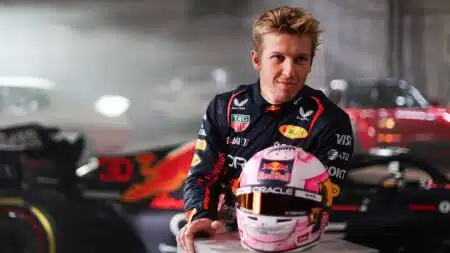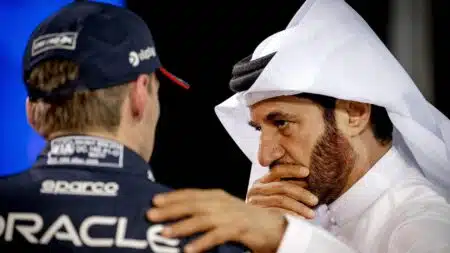
F1 snore-fest shows new cars badly needed: Up/Down Japanese GP
The 2025 Japanese GP showed a much more extreme change than next year's technical regulations is needed to make racing at classic F1 tracks interesting
If I say ‘three cylinders’ to you, what pictures fill your mind?
To me its images of tiny Japanese microcars that only ever leave their home islands by way of personal import. And the Laverda Jota. But that’s just me.
What I don’t think of are everyday cars of the type most people actually go out and buy because, pretty obviously until you get into the premium pricing, they all have four cylinders.
But not for much longer. While we all ponder whether our future is going to be based around conventional hybrids, plug-in hybrids, pure electric or some other newfangled form of power, by far the more notable change in the immediate future will be three-cylinder engines with their distinctive off-beat thrum storming the sales charts.

Here’s why. Last week I was in Portugal driving Peugeot’s new 208. The car itself is pleasant enough, a huge step forward over the 207 but not quite a sufficiently large leap to displace the Fiesta and Polo from the top of the class. Except for one version, which gets very close. Right at the bottom of the range now sits a three-pot motor and the comparison between it in 1.2-litre form and its 1.4-litre four-cylinder brother is revealing. The three has 82bhp, the four 95bhp, so you’d expect substantially better performance from the larger engine. But that’s not what you get: the three is also 95kg lighter than the four, meaning their power to weight ratios are separated by a mere 3bhp per tonne, which is all but meaningless.
What is very meaningful is that, according to the official figures, the 1.4-litre engine does 50.4mpg, while the 1.2 records 62.7mpg, with a proportional advantage in CO2 emissions.
That’s not all. This three, like threes now either on sale or being rushed to market by all the biggest mainstream players (Ford, VW, Vauxhall etc), is a far more pleasant engine than an equivalent four: smoother, more interesting to listen to and less harsh at high revs so you are incentivised to the power in a way you’d not consider in a four. So it feels faster still.
And I’m not done yet. Back in the Peugeot it is immediately obvious that the three-cylinder 208 handles and steers far better than the four-cylinder car, and if that seems in the least odd, consider not only that 95kg weight advantage, but where it is. In the case of the 208, that’s 10 per cent of the entire weight of the car removed from the end with all the weight: so the car is massively better balanced, more responsive and, in a word, fun.

Over at Ford, strategists are so confident of the potential of their 1-litre turbo three it’s stopping sales of its normally aspirated 1.6-litre four, a configuration that has been a staple of all mass market manufacturers for decades. It admits that the three is now the most refined engine currently available in the Focus. It has also owned up to developing a sequentially turbocharged unit for use in hot hatches and when I suggested a frankly ludicrous 180bhp power output, the response from its chief engineer was that such a goal for a production car was “a stretch, but possible”.
So to me the only real surprise is not that an army of three-cylinder engines is now marching fast in the direction of the mainstream new car market with nothing less than conquest on their minds, but that it didn’t get there sooner.

The 2025 Japanese GP showed a much more extreme change than next year's technical regulations is needed to make racing at classic F1 tracks interesting

Max Verstappen looks set to be pitched into a hectic, high-stakes battle for F1 victories in 2025, between at least four teams. How will fans react if he resorts to his trademark strongman tactics?

Red Bull has a new team-mate for Max Verstappen in 2025 – punchy F1 firebrand Liam Lawson could finally be the raw racer it needs in the second seat

The 2024 F1 season was one of the wildest every seen, for on-track action and behind-the-scenes intrigue – James Elson predicts how 2025 could go even further